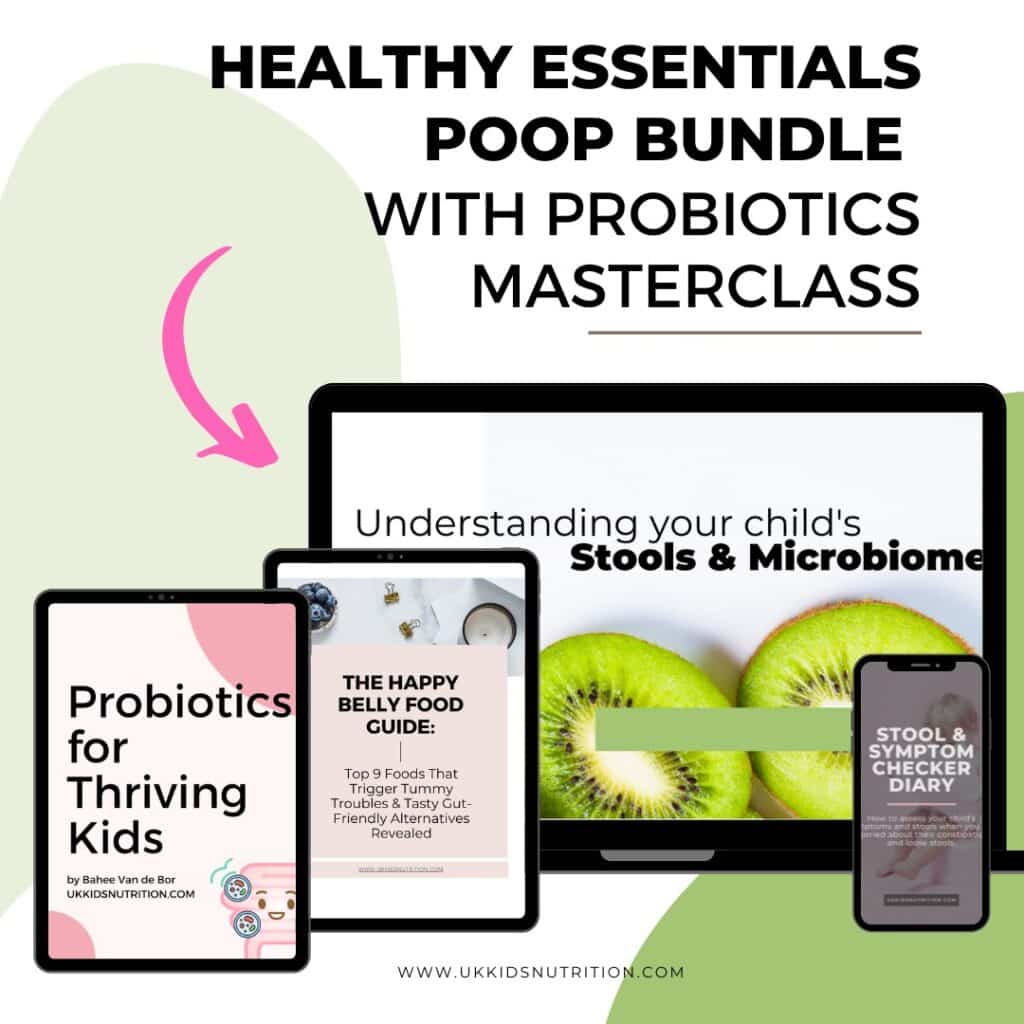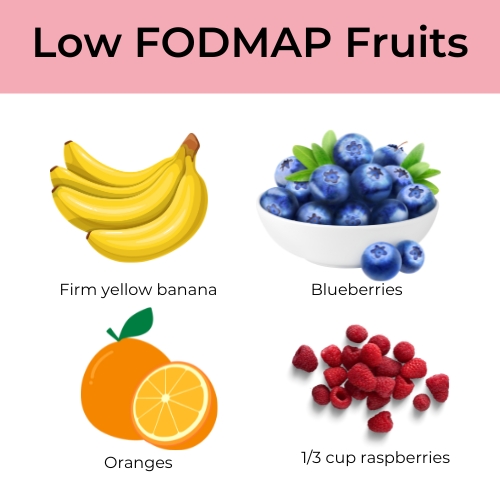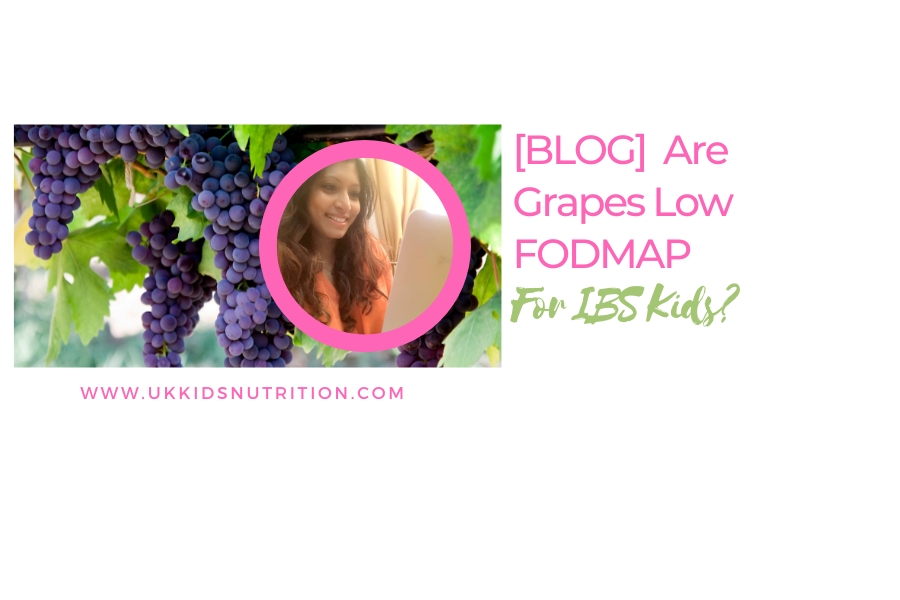Table of Contents
Are Grapes Low FODMAP For IBS Kids?
Grapes, popular in a low FODMAP diet, are not just a hit among kids but also offer health benefits.
They are rich in antioxidants and can aid in cholesterol management.
But when it comes to Irritable Bowel Syndrome (IBS) and a low FODMAP diet, are regular grapes low FODMAP for IBS kids?

What are FODMAPs?
FODMAPs, are an essential concept in managing Irritable Bowel Syndrome (IBS).
They represent a group of specific carbohydrates that can have a significant impact on a child’s gastrointestinal symptoms.
Let’s break down this acronym to understand it better:
It stands for:
- Fermentable
- Oligosaccharides
- Monosaccharides
- and Polyols
These fermentable carbohydrates resist digestion, ferment in the gut, and can cause bloating, gas, abdominal pain, diarrhoea, or constipation in children with IBS.
Are grapes low FODMAP?
Now that we’ve unravelled the intricacies of FODMAPs, it’s time to focus on IBS and grapes.
Let’s explore how these fruits fit into a FODMAP diet and whether grapes are considered low FODMAP.
We’ll now be shedding light on how they fit into a low FODMAP diet.
In the following section, we’ll explore ‘are grapes FODMAP friendly?’
According to Monash University, a leader in FODMAP nutrition research in Australia, grapes have a specific FODMAP content and serving size.
Both green and red grapes are no longer considered low FODMAP fruits.
The good news is that up to 6 medium-sized grapes can be included in a low FODMAP serving.
This serving size is crucial for those following a low FODMAP diet trial.

Are green grapes low FODMAP?
This latest analysis has shed new light on the FODMAP content of green grapes.
As mentioned above, green grapes no longer fall into the category of low FODMAP fruits.
However, the good news is that up to 6 grapes can be considered a low FODMAP serving size.
So if your child is a grape lover, it’s handy to understand the allowance of this fruit when starting the modified low FODMAP diet trial.
Fructose Content in Grapes
Green grapes contain a notable fructose content, which can impact children with IBS.
High consumption can lead to digestive discomfort, making moderation key.
An accredited practising dietitian and a paediatric dietitian (especially one experienced in managing IBS symptoms), can offer personalised advice on how to include grapes in your child’s low FODMAP meal plan.
By understanding how specific foods like grapes fit into your child’s dietary picture, you can make informed choices that prioritise their nutrition and gut health.

Are Red Grapes Low FODMAP?
The natural follow-up question to our exploration of green grapes is whether their red counterparts fare any better on the FODMAP scale.
Just as with green grapes, it’s essential to understand the FODMAP status of red grapes and whether they can be enjoyed without causing discomfort.
Monash University’s analysis has also extended to red grapes and unfortunately, similar to green grapes, red grapes are also not classified as low FODMAP fruits.
However, there is a silver lining here as well.
In the context of a low FODMAP diet trial, up to 6 medium-sized red grapes are considered a low FODMAP serving size.
This means that children with IBS can indulge in the luscious sweetness of red grapes within this defined limit without worrying about triggering digestive distress.
Are Other Varieties of Grapes Low FODMAP?
The analysis extends to other grape varieties as well.
Black grapes and grape tomatoes, like their green and red counterparts, should be served in controlled portions.
Up to 6 black grapes and a few grape tomatoes can be considered low FODMAP.
How many grapes are low FODMAP?
According to Monash University’s reanalysis of all grapes, a low FODMAP serving size is approximately 6 medium-sized grapes.
This includes seedless grapes.
FODMAP serving sizes explained
Green grapes (seedless grapes or with seeds)
Moderate FODMAP serving size is 10 medium grapes
High FODMAP serving size is 15 medium grapes
Red grapes (seedless grapes or with seeds)
Moderate FODMAP serving size is 9 medium grapes
High FODMAP serving size is 15 medium grapes

Is Grape Juice Low FODMAP?
Grape juice, high in fructose, typically does not fall into the low FODMAP category.
The high fructose content in these juices can challenge digestion and potentially lead to diarrhoea in children.
Freshly squeezed orange juice, in small servings, can be a better option in moderation.
It’s worth noting that for most children, the recommended fruit juice serving size is around 125ml, as juices can be a source of free sugars.
In young children, excessive consumption of any fruit juice can potentially lead to diarrhoea, even if your child doesn’t have IBS.
Staying mindful of the volume of fruit juice provided to your child is crucial, as large quantities of juice can result in discomforts like gas, bloating, and diarrhoea, regardless of whether your child has IBS or not.
Are raisins low FODMAP?
Children adore raisins, and they serve as a valuable source of dietary fibre.
Fibre is essential for promoting optimal gut function, helps prevent constipation on a low FODMAP diet, and can firm up loose stools.
Regrettably, raisins contain a concentrated form of fructose sugar units with one glucose unit at the end.
This carbohydrate is known as fructans and is indigestible by the human intestines.
Instead, these fructans travel to the colon, where they selectively stimulate the growth of beneficial bacteria, such as bifidobacteria and lactobacilli.
If your child is sensitive to fructans, these carbohydrates can ferment in their gut, leading to gas and bloating.
The good news is that raisins, in a FODMAP serving size of 1 tablespoon, are considered low FODMAP.
Since fructans can contribute to gut health, children can still enjoy a small quantity of raisins as a snack or a delightful addition to their breakfast porridge.
By adhering to this recommended serving size, your child benefits from the nutritional value of raisins while minimising the risk of digestive discomfort.

Low FODMAP fruits List
Apart from grapes, other low FODMAP foods like strawberries and oranges can be included in your child’s diet
While it may be disappointing to learn that grapes are not typically considered low FODMAP fruits for both adults and children, there’s no need to worry.
Your child can still enjoy a variety of delicious, nutritious fruits.
If your child’s paediatric dietitian has advised limiting high FODMAP fruits, consider incorporating low FODMAP alternatives like:
- Blueberries
- Oranges
- ⅓ cup raspberries
- A medium-firm yellow banana
These fruits not only tantalize their taste buds but also support their digestive health, without triggering IBS symptoms.
Collaborating with a paediatric practising dietitian experienced in FODMAP management can help you create a well-rounded, enjoyable meal plan that caters to your child’s nutritional needs and preferences, ensuring a happy balance of taste and gut health.
Bottomline
In this article, we’ve discovered that both green and red grapes are generally not low FODMAP foods.
Yet, up to 6 grapes is a low FODMAP serving, offering some flexibility for those questioning, ‘Are grapes bad for IBS?’
Remember, FODMAP tolerance is unique to each child.
Collaborating with a registered paediatric dietitian for personalised IBS management in kids is crucial.
My Happy Belly Club, guided by an IBS-trained paediatric dietitian, provides the Happy Belly Formula, tailored to identify your child’s unique dietary triggers while ensuring their overall gut health and dietary diversity.

Let Me Help
If your child is battling constipation, bloating, or tummy pain, the Happy Belly Formula can help.
Join our 1-2-1 Happy Belly Club or book a discovery call to learn more about our program tailored to support your child’s journey to better gut health and well-being.





More Stories
Avocado Cacao Mousse – JSHealth
Janelle Brown on Garrison’s Mental Health Before His Death
How To Finally Beat Insomnia